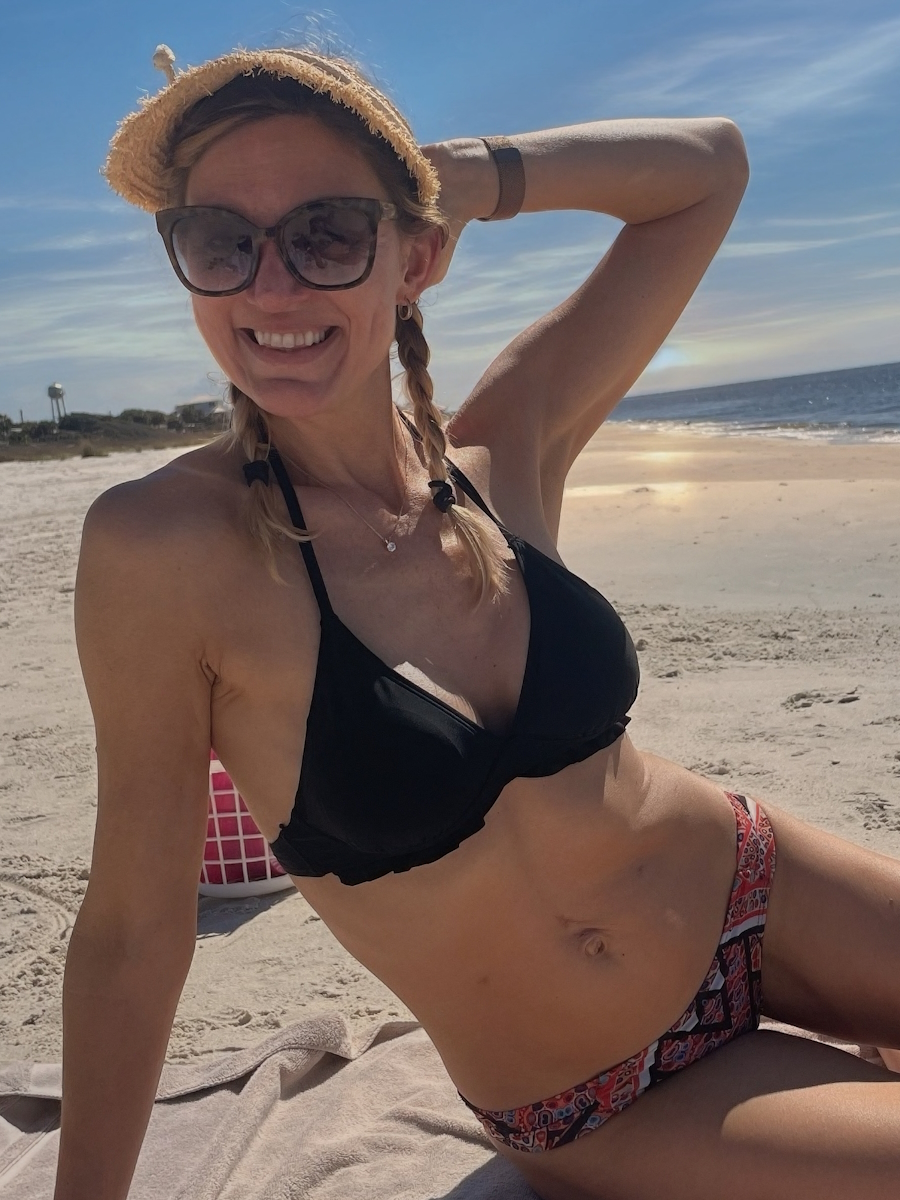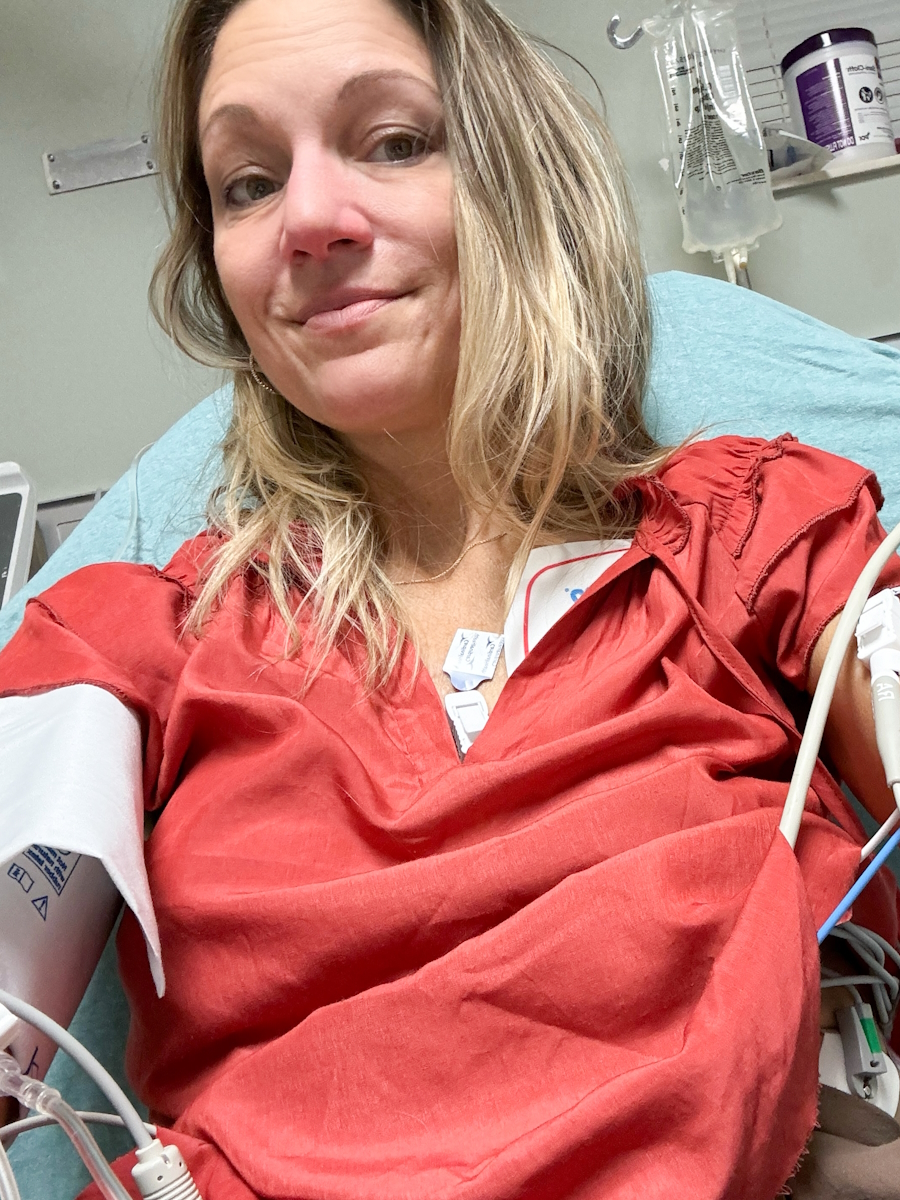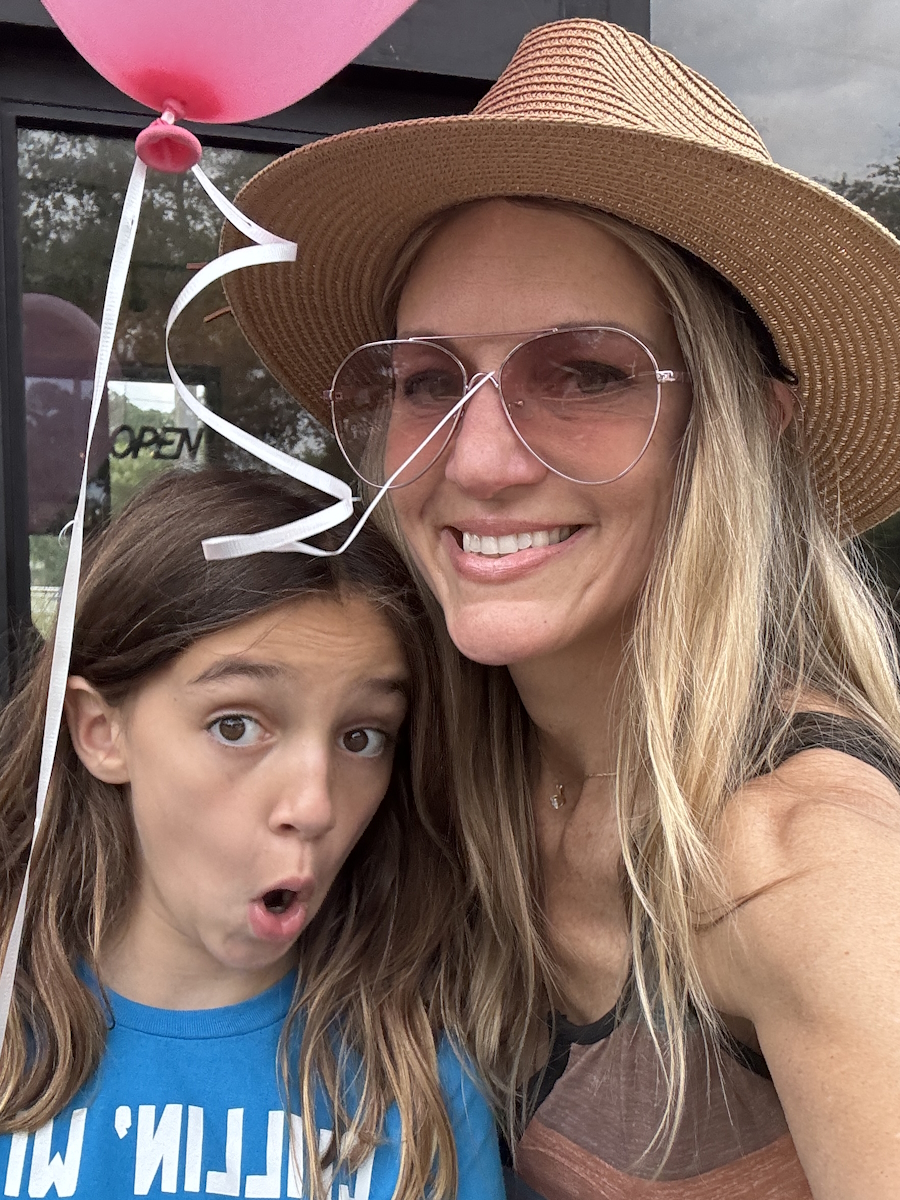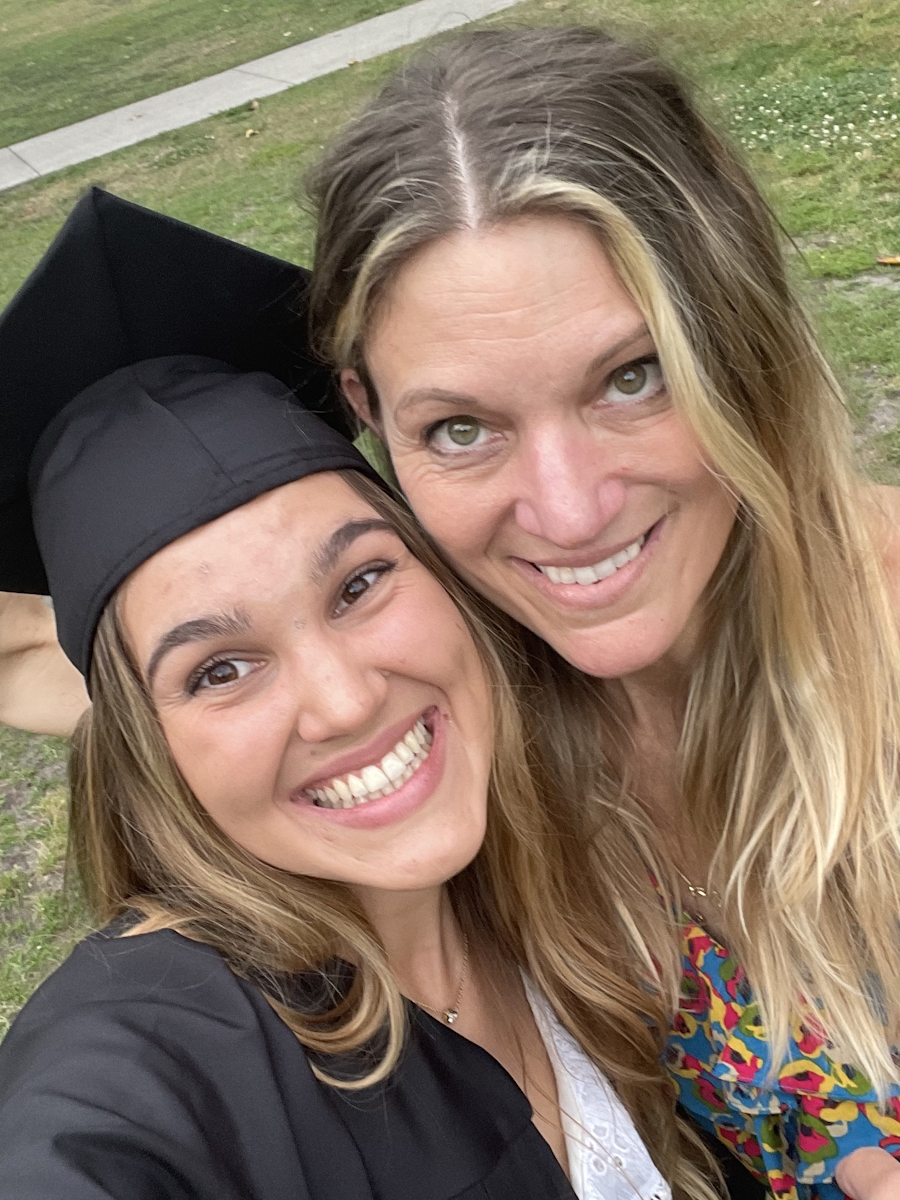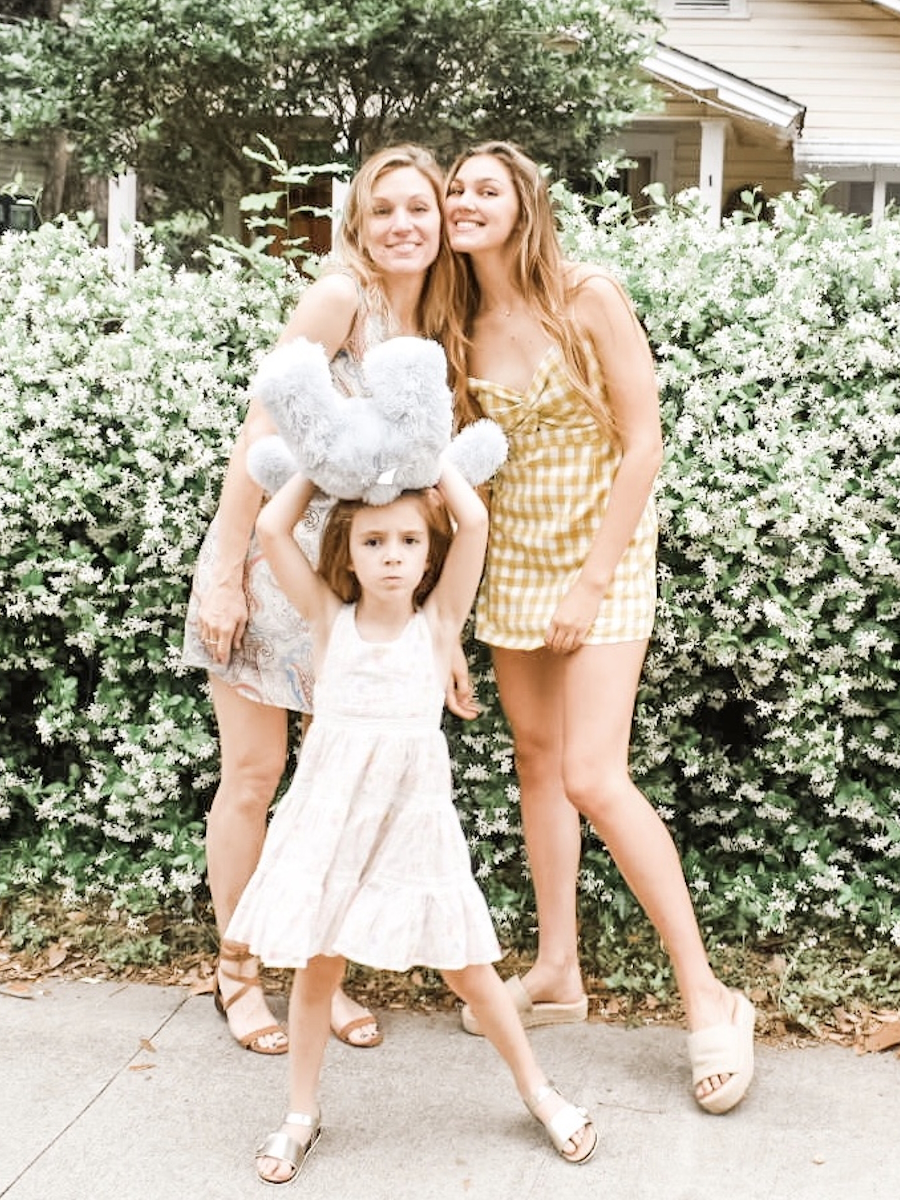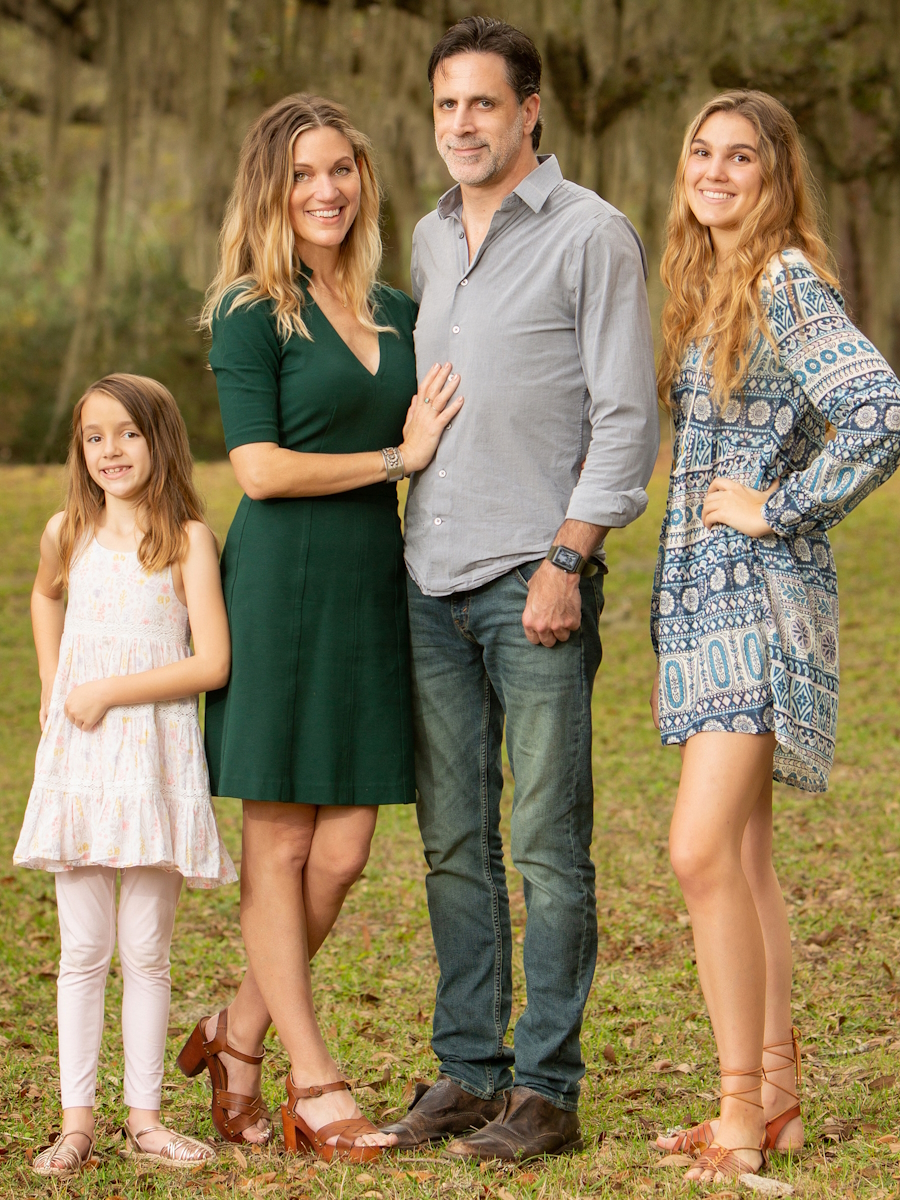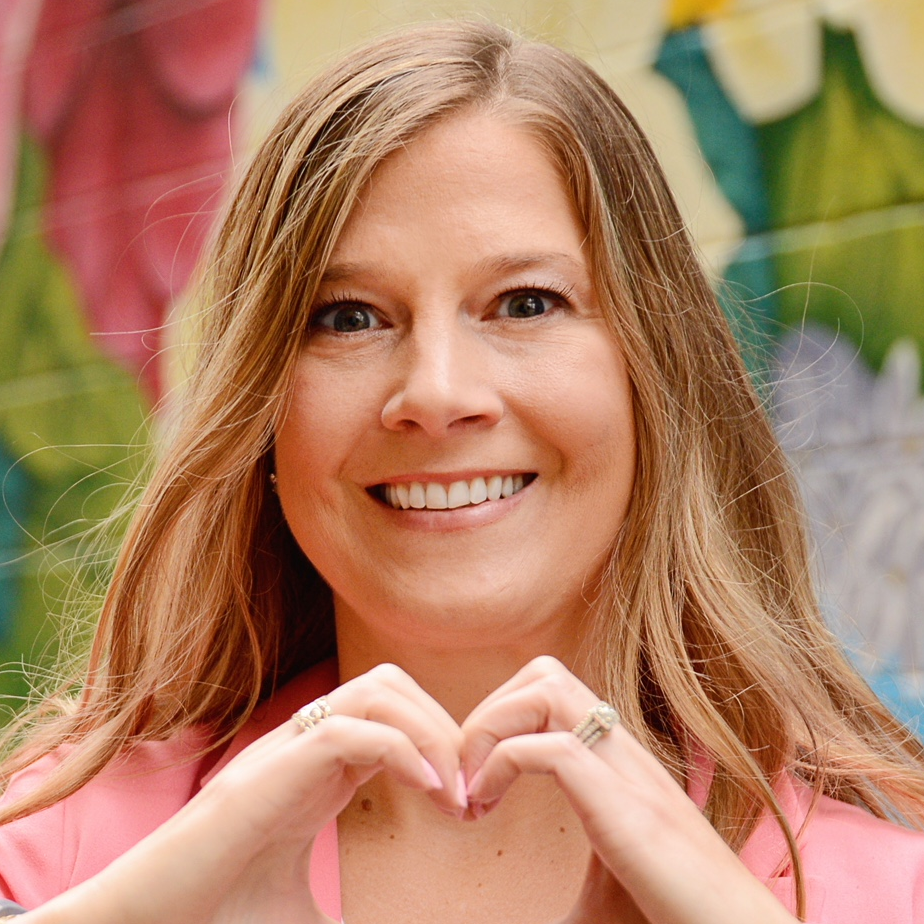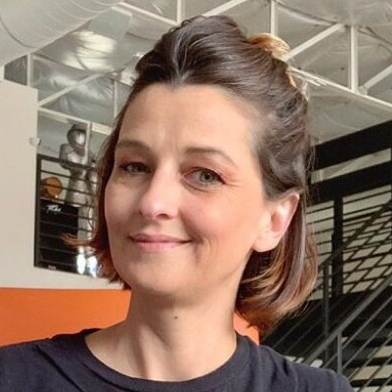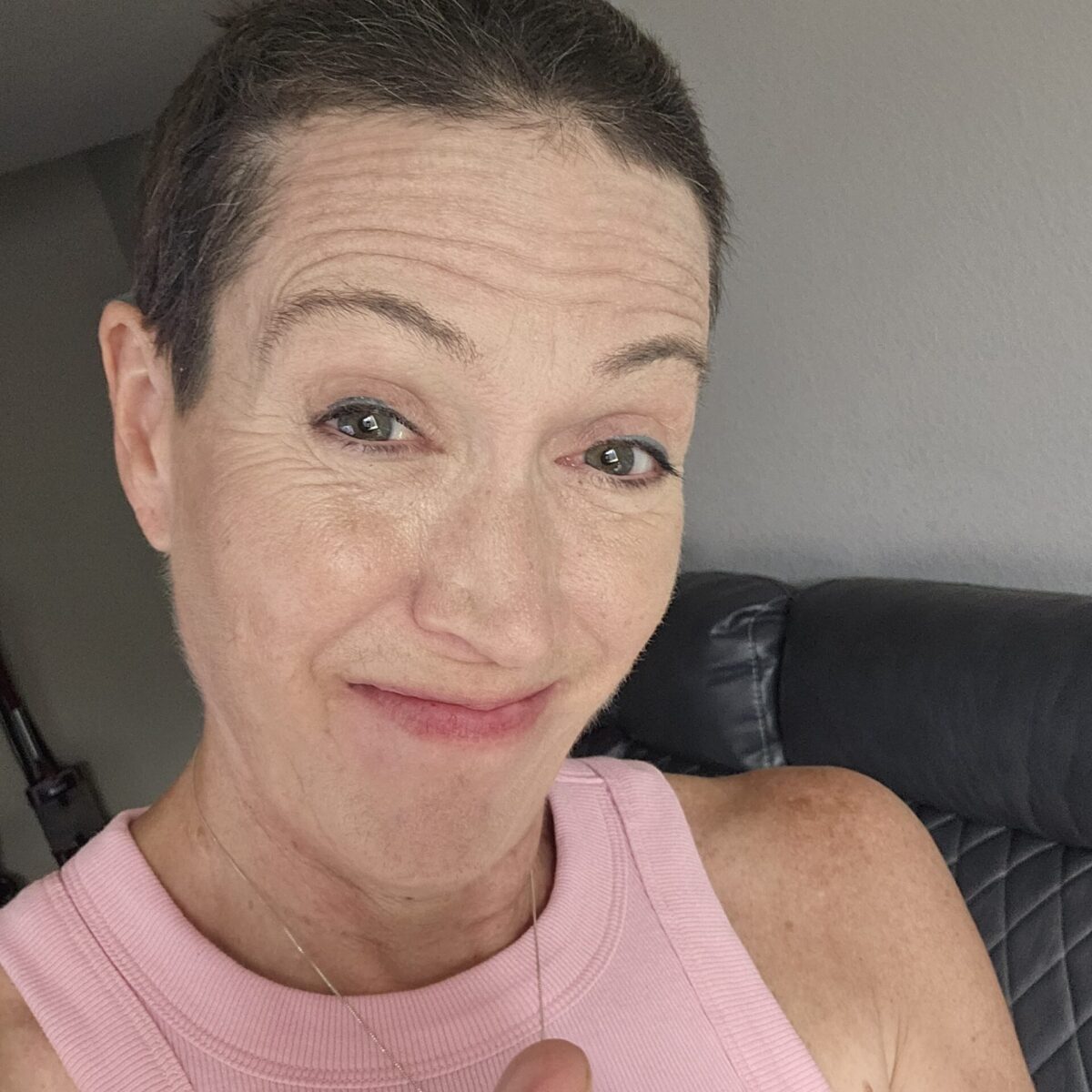How Hormone Replacement Therapy Helped Honey Feel Like Herself Again After Breast Cancer
When Honey, a talented artist from Tallahassee, Florida, discovered a lump in her breast, it wasn’t during a routine checkup — she hadn’t had a mammogram in 15 years. In fact, she wasn’t one to visit doctors at all. But something told her to pay attention, and she did. That gut instinct led to a breast cancer diagnosis on her birthday in 2020, which was a shock but also a moment of clarity. As a mom, wife, and creative professional, Honey immediately thought that she didn’t have time for this and took quick, decisive action.
Interviewed by: Taylor Scheib
Edited by: Katrina Villareal
Honey opted for a bilateral mastectomy, skipping chemo and radiation because she felt strongly that they weren’t right for her. Her reconstruction process was full of surprises, from unexpectedly larger implants to feeling sidelined in decisions about her own body. Still, she handled the process with humor, especially during a hilarious family moment when her 98-year-old grandmother loudly asked about her new breast size. But it wasn’t all laughs. Honey felt unheard during the surgical process and wishes more women knew they could (and should) speak up more.
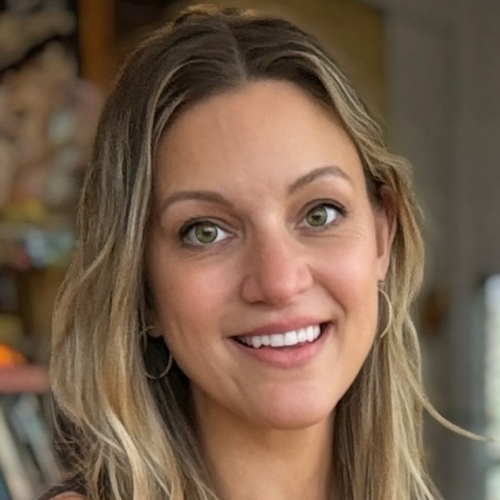
What Honey didn’t see coming was the long-term impact of surgical menopause after her oophorectomy. Doctors told her it was “no big deal” and necessary to reduce the chance of breast cancer returning. But what followed were debilitating symptoms: nerve pain, insomnia, arm tingling, weakness, and a misdiagnosis of rheumatoid arthritis. Eventually, Honey connected the dots — her body was starved of hormones. She dove into research, discovering thought leaders and the benefits of hormone replacement therapy (HRT) for breast cancer survivors.
Although it took time and persistence, Honey found a local doctor willing to prescribe HRT. That decision changed everything. Her pain subsided, her energy returned, and she felt like herself again — creative, vibrant, and empowered. Now, Honey urges others to question recommendations, understand available treatment options, and advocate fiercely. She believes that doctors often stay in their lane, and it’s up to patients to see the whole picture.
Honey’s story isn’t just about surviving breast cancer; it’s about reclaiming her health, her identity, and her joy. She encourages others not to be silenced, not to feel guilt, and to forgive themselves for what they didn’t know at the time. With hope, gratitude, and light, she continues to paint and share her truth.
Watch Honey’s video to find out more about her story:
- Discover how her intuition led to a life-changing diagnosis on her birthday.
- Why Honey said “no” to chemo and radiation, and what she did instead.
- The surprising truth she uncovered about oophorectomies and hormone loss.
- What no one tells you about breast reconstruction and how Honey handled it.
- How hormone replacement therapy gave Honey her energy, art, and identity back.
- Name: Honey H.
- Age at Diagnosis:
- 48
- Diagnosis:
- Breast Cancer
- HER2-, PR+, ER+
- Staging:
- Stage 2
- Symptom:
- Lump in the right breast
- Treatments:
- Surgeries: Bilateral mastectomy with reconstruction, lymph node removal, oophorectomy
- Hormone replacement therapy (HRT)
This interview has been edited for clarity and length. This is not medical advice. Please consult with your healthcare provider to make informed treatment decisions.
The views and opinions expressed in this interview do not necessarily reflect those of The Patient Story.

Inspired by Honey's story?
Share your story, too!
More Breast Cancer Stories
Symptom: Sunken in nipple of right breast
Treatments: Double mastectomy, chemotherapy (AC-T), radiation, hormone therapy (tamoxifen, Zoladex)
Stephanie J., Triple-Negative Breast Cancer, Stage 3, Grade 3, IDC, BRCA1+
Symptom: Lump in left breast
Treatments: Chemotherapy, surgery (double mastectomy, oophorectomy, hysterectomy, breast reconstruction)
Stefanie H., IDC, Stage 3, Triple-Positive
Symptom: Lump in the breast
Treatments: Chemotherapy, surgery (lumpectomy), radiation
Symptoms: Shortness of breath, lump under armpit, not feeling herself
Treatments: Chemotherapy, Transfusions

